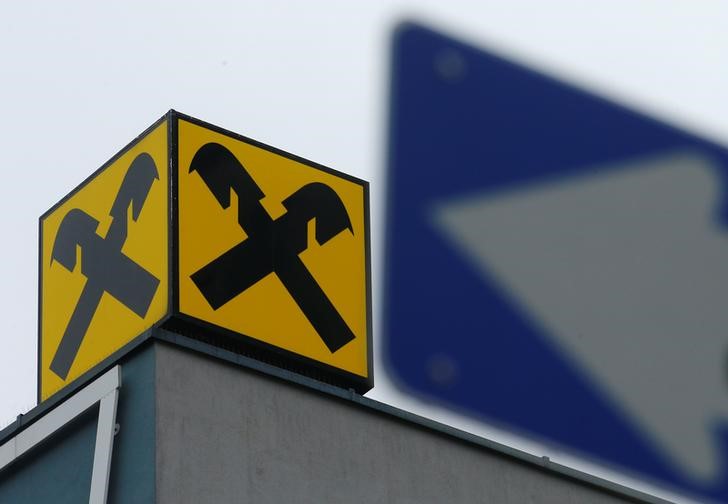By Ulf Laessing
ZAKHO, Iraq (Reuters) - Iraqi-Kurdish trader Kasim Dilbrin lost everything when Islamic State seized his warehouses in Mosul. Now the militants are retreating, he is back in business, bringing everything from baby food to flour over the border from Turkey.
Fighting is still raging in Iraq's second largest city where Islamic State suicide bombers and snipers are facing off against advancing Iraqi troops and U.S.-led air strikes.
But just a few blocks from the frontline, on the government-controlled, eastern side of the Tigris river, shops and restaurants are springing back into life, alongside a market filled with goods from Dilbrin and his competitors.
"We are selling 50 tonnes of flour to Mosul every week," he said, sitting in his offices in the town of Zakho, 100km (60 miles) further north on the border with Turkey.
That is still a fraction of the 300 tonnes he used to sell to Mosul until Islamic State arrived in June 2014 and shut down his business because he was a Christian.
But things are changing fast. Months after Iraq's government and its allies started an offensive against the militants, Kurdish merchants are pushing on behind them, bringing their Turkish produce back along reinvigorated trade routes.
"Sales have gone up by 30 to 40 percent," since the offensive started in October, said Mosleh Ismail, a dealer in Turkish honey and jam, also based in Zakho.
He sends a truck to Mosul four times a week, and has secured contracts to supply the nearby Khazer camp, home to about 40,000 displaced people.
CHECKPOINT PAYMENTS
Under Islamic State's 2-1/2-year-long occupation of Mosul, supply routes shifted away from Turkey to Syria - particularly the militants' Syrian stronghold of Raqqa.
Some Turkish goods got through, alongside produce from Syria and Iran. But larger Turkish suppliers pulled out, scared off by the closed routes and heightened security threats.
Some are still wary. "I got arrested twice by Daesh (Islamic State) ... I won't be going back even if I lose business," said one driver in Zakho who gave his name only as Gharib.
And many logistical problems remain. Only one route from Zakho is open - a 200-km roundabout route via the Kurdish town of Kalak. Traders also have to negotiate a series of often costly roadblocks.
A Reuters correspondent saw a truck driver hand over seven bags of pasta to a soldier before he was let through a checkpoint to eastern Mosul.
"I have to pay $35 dollar a tonne flour at checkpoints," said Dilbrin. "It's not really official but you can't avoid it."
But the return of the Kurdish traders has already proved a boon for Iraqi Kurdistan, an autonomous region in northern Iraq hit by low oil prices and the Baghdad government's decision to cut off funding after the Kurdistan Regional Government started building a crude pipeline to Turkey.
Kurdish telecoms firm Korek has been expanding to eastern Mosul, tapping a market where people have been starved of internet and cell phone subscriptions banned by militants.
And every day, hundreds of lorries cross the Turkish border, pushing to reopen markets in Mosul and beyond.

"Transport costs are driving up prices," said Ismail. "But they will go down as competition is increasing."